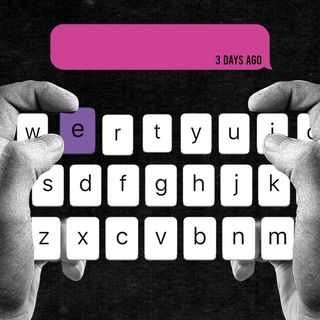In this series, we dig into our strange phobias, fixations, and neuroses, and ask ourselves — Is This Normal?
When I met my partner’s family for the first time, I was so nervous that almost everything I said would go onto anyone’s list of the worst jokes they’ve heard in possibly a decade. It’s my strange, albeit funny (although most people will disagree) coping mechanism for stress — especially the kind brought on by social gatherings. Since I suffer from extreme social anxiety, I’m prone to dropping terrible puns and innuendos in most social situations — but there are some times when it just seems I’m churning out the poorest of jokes at a breakneck speed, almost on auto-pilot.
Is this normal? It just might be.
Research suggests that humor can alleviate anxiety in the short term in a variety of ways, making it easier for people to stay calm in stressful situations.
Stress can often be brought on by a sense of helplessness, which translates into a perceived lack of control. Making jokes can help one feel they are taking control of the situation, and further, exercising control over their own emotional state. “Humor helps people take back their sense of power in a powerless situation,” author Sherri Gordon writes.
Moreover, humor can force one to look at the same situation from a different perspective, possibly a funnier one — which might shift an individual’s attitude from nervousness to amusement, from overwhelming to minor.
“Humor fundamentally trivializes its topic,” researchers write in a 2019 study of humor and group relations.
Related on The Swaddle:
Is This Normal? “I Smile and Nod Even When I Want to Disagree”
A desire for group relations might be another reason we joke when we’re nervous. One of the reasons I was so nervous to meet my partner’s family was because I wanted to get along, to be liked. And jokes can help one achieve exactly that — ideally, they elicit laughter, and laughter can act as a social glue. “For people who are laughing together, shared laughter signals that they see the world in the same way, and it momentarily boosts their sense of connection,” Sara Algoe, a social psychologist from the U.S., explained.
That said, my jokes are terrible. But even if I’m the only one laughing, that may still have a helpful effect. Popularly known as a ‘giggle loop,’ giggling when we’re nervous is fairly common. It’s our body’s way to achieve emotional homeostasis when we’re physiologically overwhelmed by extreme emotions, like escalating uneasiness. Moreover, laughter can trigger an increase in endorphins and in dopamine — helping us feel good and signaling safety.
This kind of laughter can help diffuse a tense situation for everyone, not just the one giggling. “… Laughter in combination with nervousness suggests to other people around the person that they, too, should help down-regulate that nervousness,” Margaret Clark, professor of psychology at Yale University, told Headspace.
Compulsive joke-making outside of tense situations, however, can be pathological. Witzelsucht is a condition that manifests in the form of chronic, compulsive, and often inappropriate humor that elicits laughter from the joker, but annoys most people around them. Witzelsucht results from damage to one’s frontal lobe — typically due to right frontal lobe tumors, head trauma or injury, or even strokes. However, for people experiencing witzelsucht, the urge to crack jokes isn’t brought on by stressful situations — it persists all day, every day.
While most of my jokes don’t land, some do — helping me form bonds with people I was otherwise anxious to be around. In fact, it has resulted in some friendships I hope to cherish forever. And even when my jokes don’t land, I laugh anyway — often triggering a laughter contagion that forces those around to laugh, too. But irrespective of whether people laugh with me or cringe at my jokes, as long as I’m laughing, I’m happy — courtesy of all the ‘happy hormones’ my brain is releasing — and I’m normal.
Up for some puns, anyone?




